Silent night: After Christmas celebrations Christians fear shrinking community will disappear in Gaza
There are only a few hundred left in blockaded enclave and amid threat of war, many more hope to leave
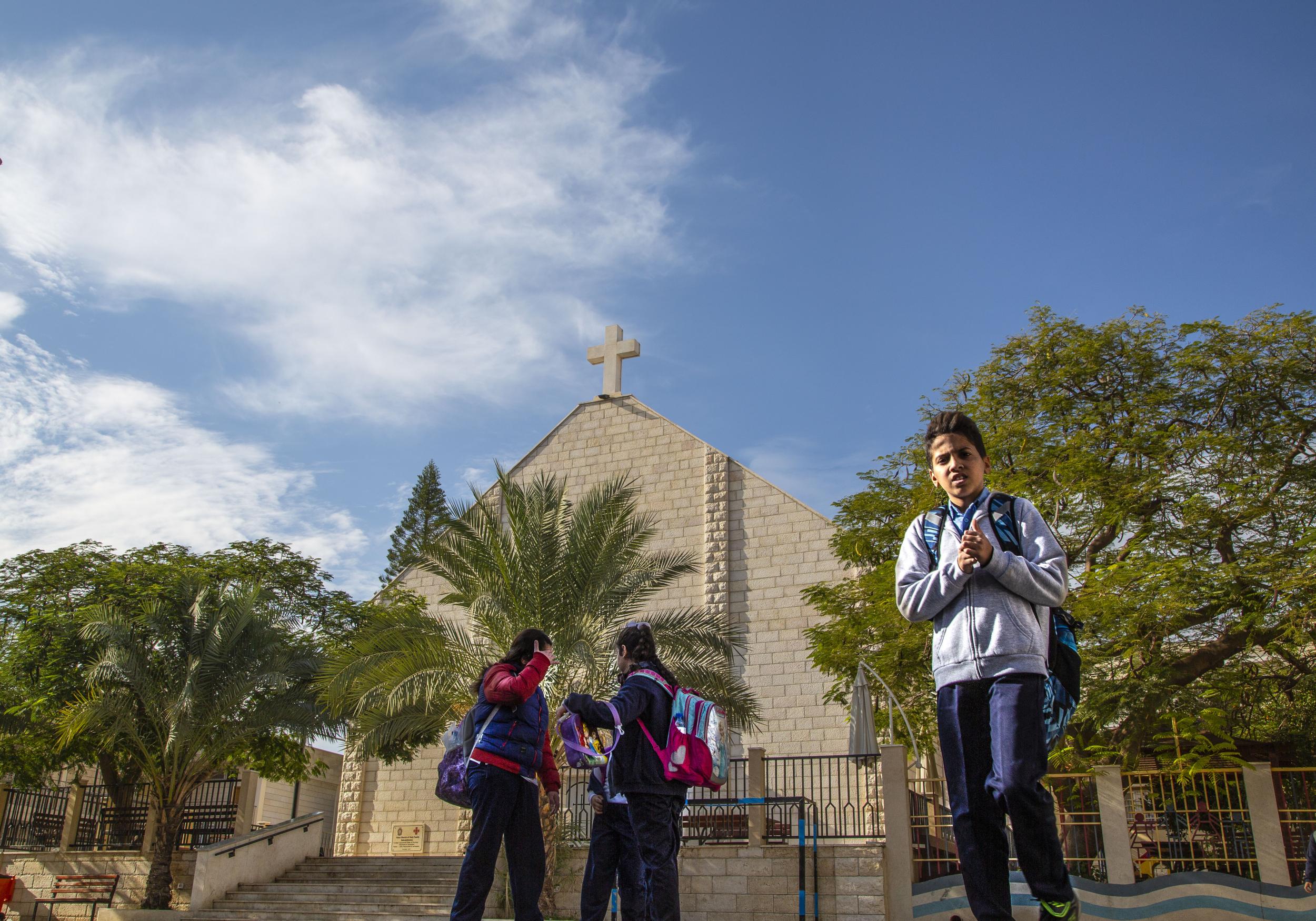
Your support helps us to tell the story
From reproductive rights to climate change to Big Tech, The Independent is on the ground when the story is developing. Whether it's investigating the financials of Elon Musk's pro-Trump PAC or producing our latest documentary, 'The A Word', which shines a light on the American women fighting for reproductive rights, we know how important it is to parse out the facts from the messaging.
At such a critical moment in US history, we need reporters on the ground. Your donation allows us to keep sending journalists to speak to both sides of the story.
The Independent is trusted by Americans across the entire political spectrum. And unlike many other quality news outlets, we choose not to lock Americans out of our reporting and analysis with paywalls. We believe quality journalism should be available to everyone, paid for by those who can afford it.
Your support makes all the difference.The Christian mother-of-three bakes biscuits with her young daughters to try to distract them from their crippling fear of airstrikes and war.
Nisreen Antoine, 35, who works at Our Holy Family, Gaza’s only Catholic church, says behind the building’s towering gates, the dwindling community is muted and miserable.
Advent for them was not a countdown to Christmas but rather the day the community found out whether they had secured annual permission from the Israelis to leave the 30-mile strip of territory.
The Christmas and Easter permits to leave and worship in Jerusalem or Bethlehem are for many Christians the only chance of a one-way ticket out of Gaza, where the youth suffer from the highest unemployment rates in the world and live under constant threat of another war.
Rafah, the border with Egypt, is intermittently closed and these days it can cost upwards of $1,000 to secure a place on the list allowed to leave.
There were an estimated 4,000 Christians in Gaza before Israel enforced a crippling blockade following the 2007 takeover of Gaza by Hamas, the militant group that still runs the enclave.
Fast forward 11 years and the community says there are no more than 700 Christians left out of a population of 2.2 million.
“No one who gets to leave Gaza will come back. We have an incredibly hard situation these days – not just for Christians for all Gazans. It’s like a prison here, and this year is the worst it has ever been,” she tells The Independent from within the church’s offices. "Last Christmas 22 Christians got permissions and didn’t come back. Over Easter only those over 55 years old were granted permits. This is our chance to get out of Gaza."
She says some even go directly to the airport in Amman, across the border from the West Bank.
Nisreen and her family, have tried multiple times to get out and have unsuccessfully applied for asylum in both Canada and Germany. She has not seen her sister, who lives in Jerusalem, in two years.
The permit system is, according to the Israelis, essential to the security of the Jewish state, but often appears haphazard to Gazans. Last Christmas, although Nisreen’s entire family applied, the Israeli authorities bizarrely granted only her seven-year-old daughter permission to travel.
She says the Israelis never let them go together "knowing we won’t come back."
She adds: "There is a big push for people to leave especially this year when we have been living under constant threat of a war. My children cried constantly during the latest bombing so we just try to keep spirits up. We make decorations at home, decorate the tree with lights, sometimes we bake Christmas cookies, anything to take their minds off it.”
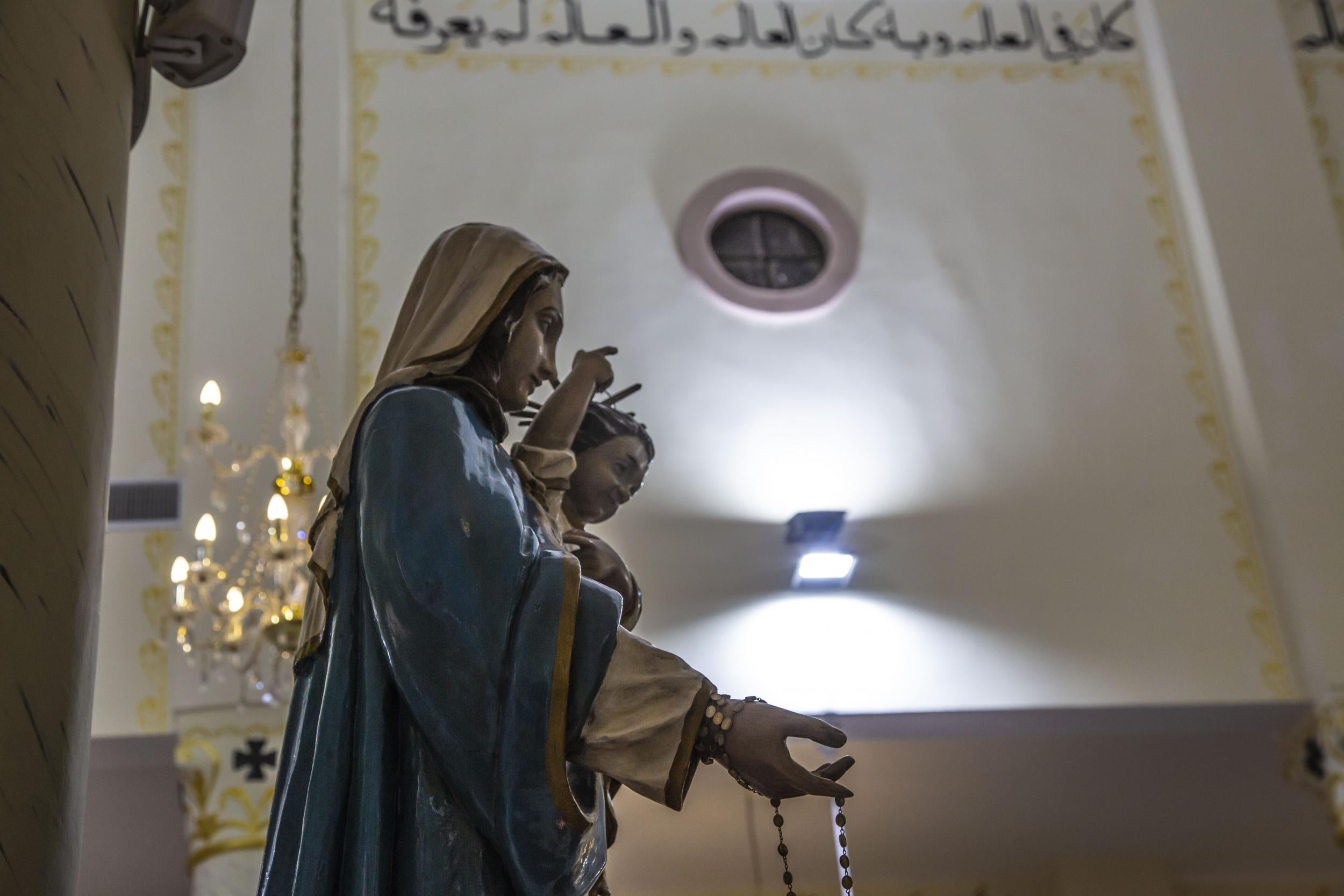
This year has seen the worst cross-border exchanges of fire between militants in Gaza and the Israeli army since the last conflict in 2014, sparking fears of a fourth war in a decade.
Violence has flared since March when Palestinians launched weekly protests at the border fences with Israel demanding the end of the blockade and a right to return to their ancestral lands they were forced from or fled in 1948.
Over 200 Palestinians have been shot dead and tens of thousands injured by Israeli soldiers that say the Palestinians have attacked the border and endangered Israeli lives by launching incendiary kites and balloons attached with explosives, which have destroyed acres of land.
In October, tensions reached breaking-point when a botched Israeli intelligence raid into southern Gaza resulted in a deadly firefight.
Fighters from Gaza fired more than 400 rockets into southern Israel in the heaviest bombardment since the last war. Israel, meanwhile, pounded the strip with airstrikes.
A tense calm now holds after Egypt and the international community intervened. But embattled Israeli prime minister Benjamin Netanyahu faces mounting pressure to resume strikes on Hamas.
Many fear, as no formal ceasefire deal is in place, it is only a matter of time until the next war breaks out.
For the shrinking Christian population, trapped in the middle, the courtyards of the pristine churches are an essential respite.
Our Holy Family church is in surprisingly good shape for battle-battered Gaza. It is supported by different foreign institutions including nuns from Mother Teresa’s Missionaries of Charity, who live in dorms around the building and care for the sick, disabled and elderly.
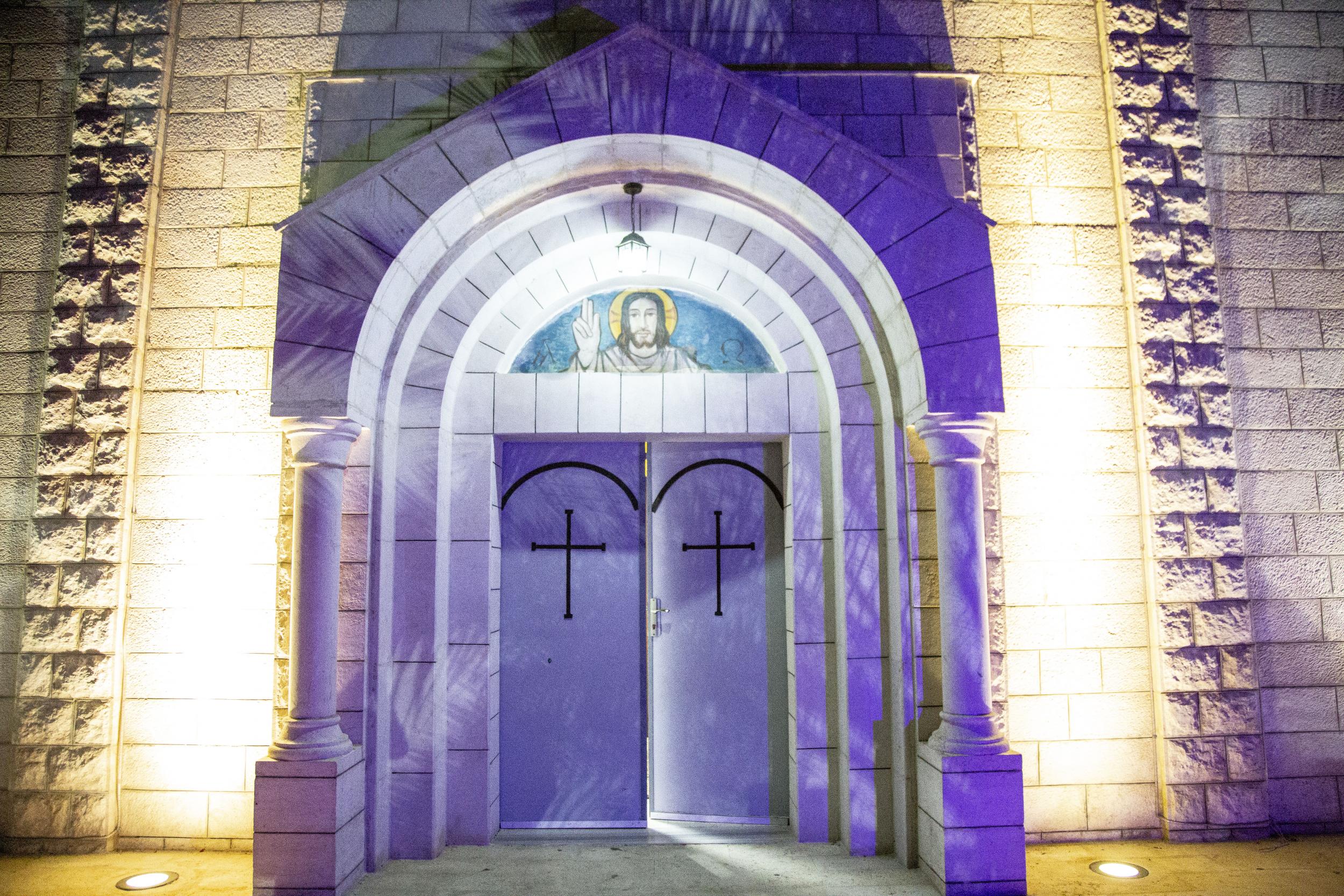
The parish priests are also foreigners: Father Mario de Silva, is a Brazilian from the Latin Patriarchate of Jerusalem, the assistant pastor is an Egyptian cleric called Youssef Assad.
But while outsiders are coming into Gaza to support the beleaguered community, most of the Christian youth, like their Muslim counterparts, want to leave the enclave.
Over half of Gaza’s population live under the poverty line – more than 70 per cent of the youth are unemployed.
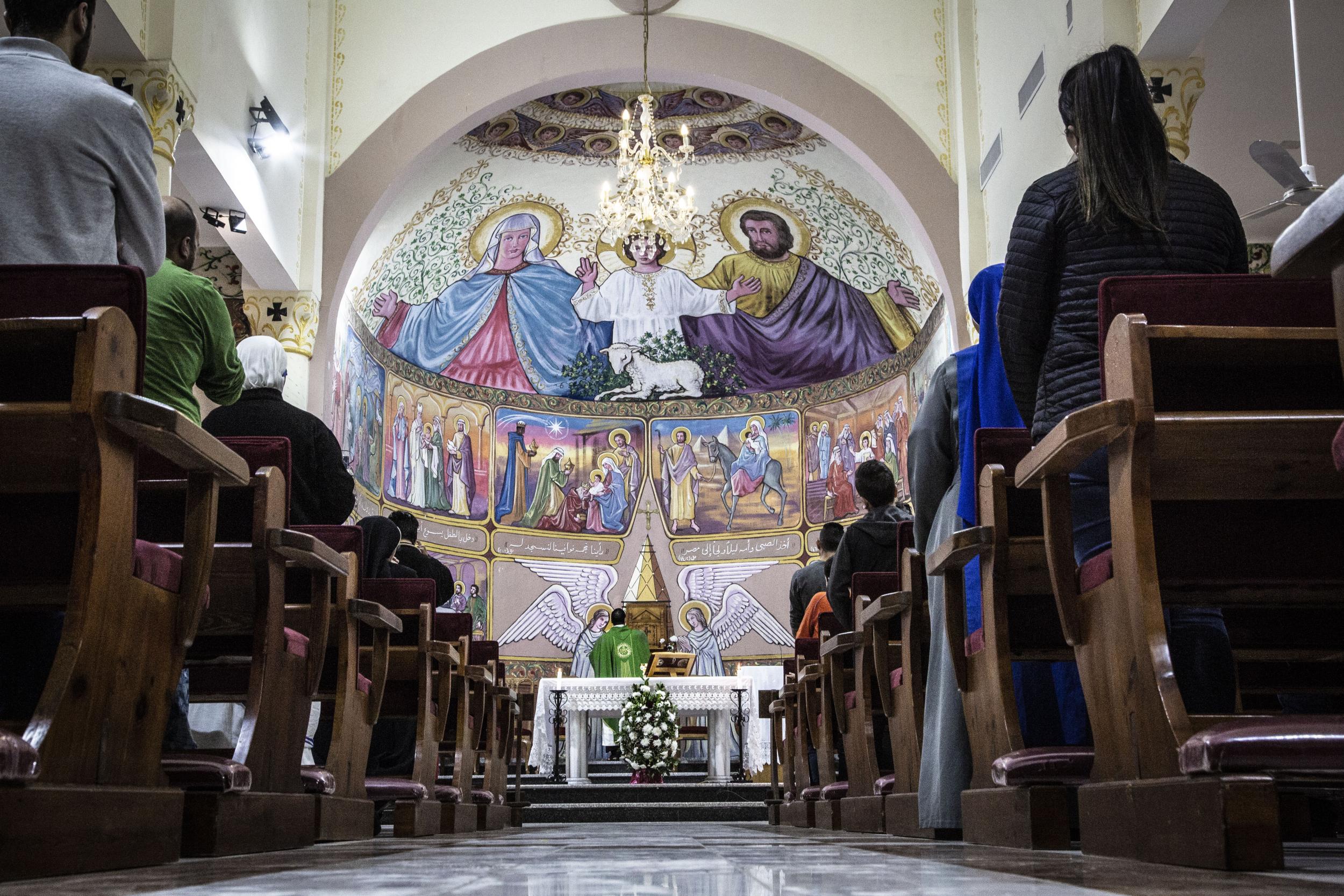
The World Bank said in September that the economy was in “free fall” and this year has been particularly tough after the West Bank-based Palestinian Authority decided to reduce monthly payments to Gaza by $30m in order to pile pressure on their rivals Hamas to step down. President Donald Trump’s decision to cut all funding to the United Nations Palestinian refugee programme and to wind down its $60m of US government aid has only piled more pressure on Gaza’s struggling population.
Up until very recently most families only had access to four hours of electricity a day.
Although there are no formal statistics, Christians quietly admit they often find it harder to find work, simply because they are not part of the Hamas-led power structure or the powerful Muslim families in Gaza.
There are no Christian political parties in Gaza and no Christians in the local cabinet.
For the youth this has an unexpected knock-on effect.
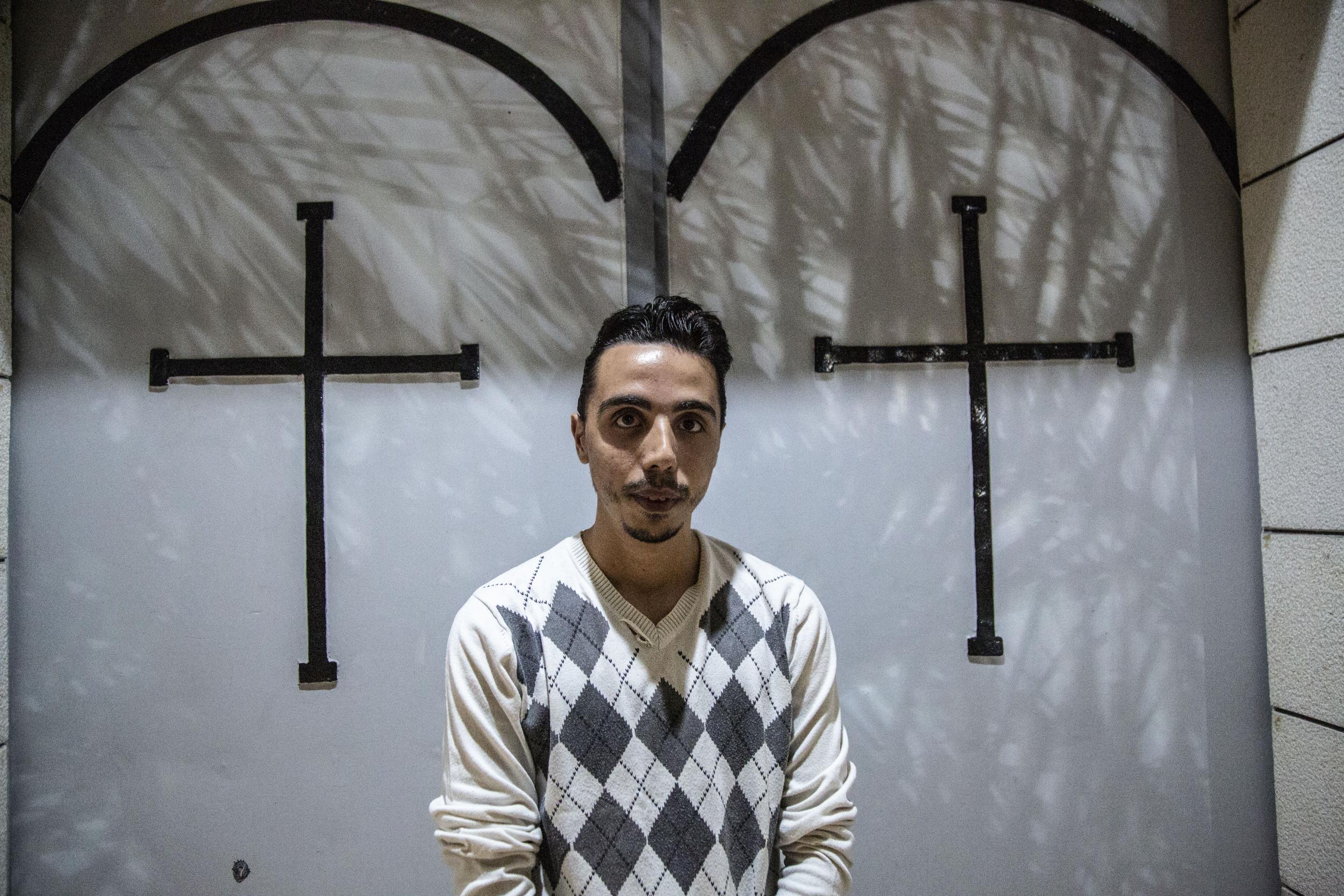
Ehab Ayyad, 24, said the lack of jobs and crippling economic crisis means that many Christian men cannot afford to get married. Like most Gazans, the husbands are expected to provide a furnished flat for their brides.
“Most of Gaza’s Christian women now meet their partners online who are based in Jordan and the West Bank and so try to get out. So the Christian men too have to leave to find jobs so they can start families,” the unemployed business graduate said.
He too is waiting for a permit to leave and dreams of becoming an international football player in the UK.
“I know about 150 people who have left. I’ve got about four friends left who are still here,” he adds.
In the meantime, Ehab helped the church plan its Christmas Day celebration which started with lunch in the grounds and end with games of bingo.
Before the Hamas take over in 2007, Christians in Gaza were able to erect a Christmas tree in public squares and celebrate openly like Palestinian Christians do in the West Bank.
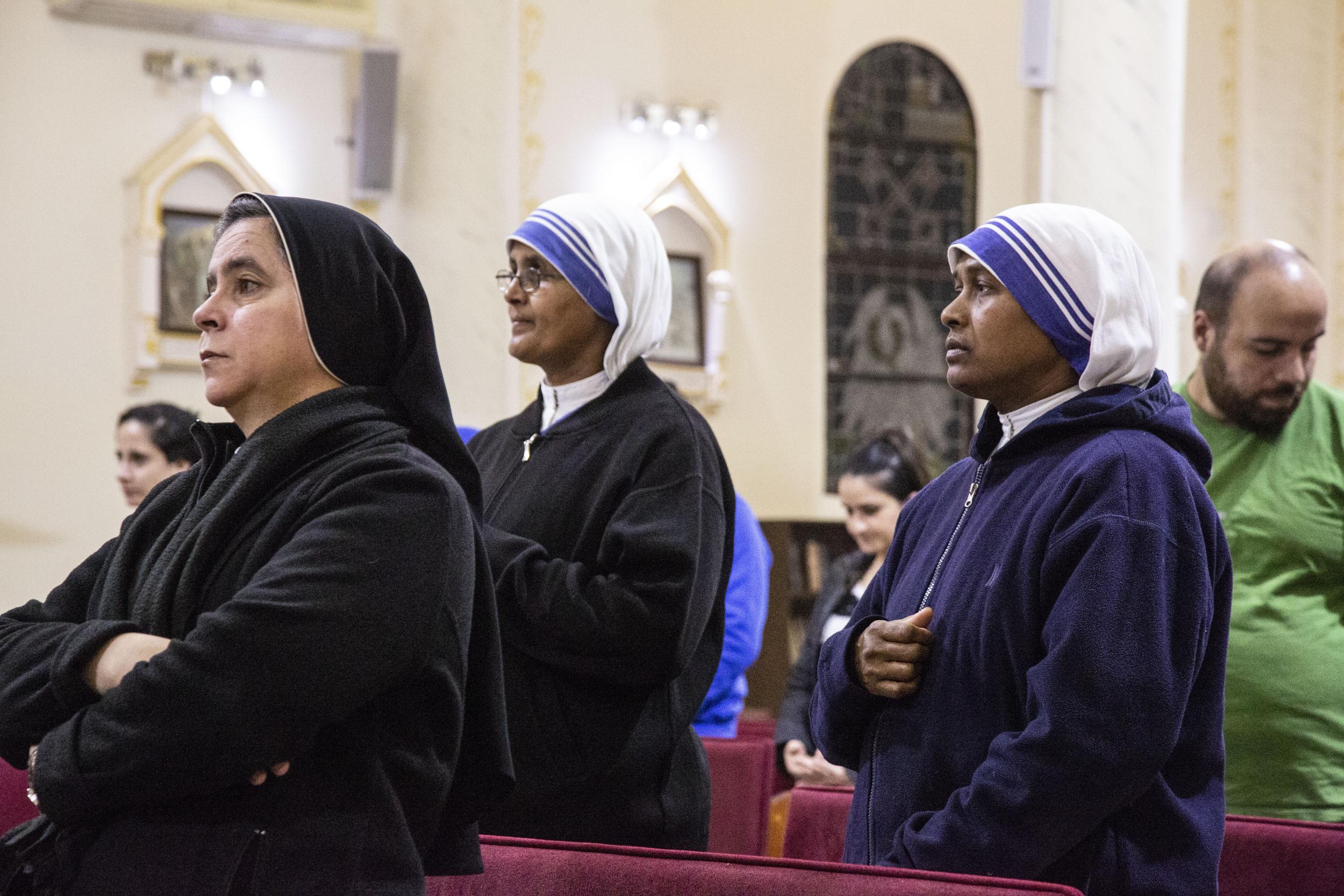
These days, although Christians and Muslims here live in relative harmony, Christians are forbidden from celebrating publicly and so keep their festivities behind closed doors.
While sectarian strife is extremely rare in Gaza, and the subject is an incredibly sensitive one, residents say there have been isolated instances. Ehab’s own cousin Rami Ayyad, 31, was abducted by suspected Muslim extremists and killed just months after Hamas’s takeover over a decade ago. Back then, Rami was the manager of Gaza’s only Christian bookshop that had already been attacked. Both Muslims and Christians attended his funeral service
Ehab said he was threatened in 2013 by members of another fringe extremist group who were angered by his Facebook posts supporting Syrian president Bashar al-Assad. Ehab had congratulated Syrian regime forces for chasing jihadists out of Syria’s ancient Christian town of Maaloula, sparking their wrath
“But extremist groups are small here – they operate under the table and are not popular. We are all united here, and live side by side. The situation is too tough for differences,” he adds
An example he cited was last Christmas when his church joined other Palestinian institutions in not ringing Christmas bells after the controversial announcement by Mr Trump that he was going to move the US embassy to Israel from Tel Aviv to Jerusalem, recognising the deeply contested city as Israel’s capital
Ehab said the decision was out of “respect and solidarity” with all Palestinians who see Jerusalem as their capital too.
But amid the gloom are pockets of hope.
Jawdat Michael, 26, a peace activist and Christian youth leader, helped open a Christian community centre in March that offers employment, computer and language training programmes to help youth find work.
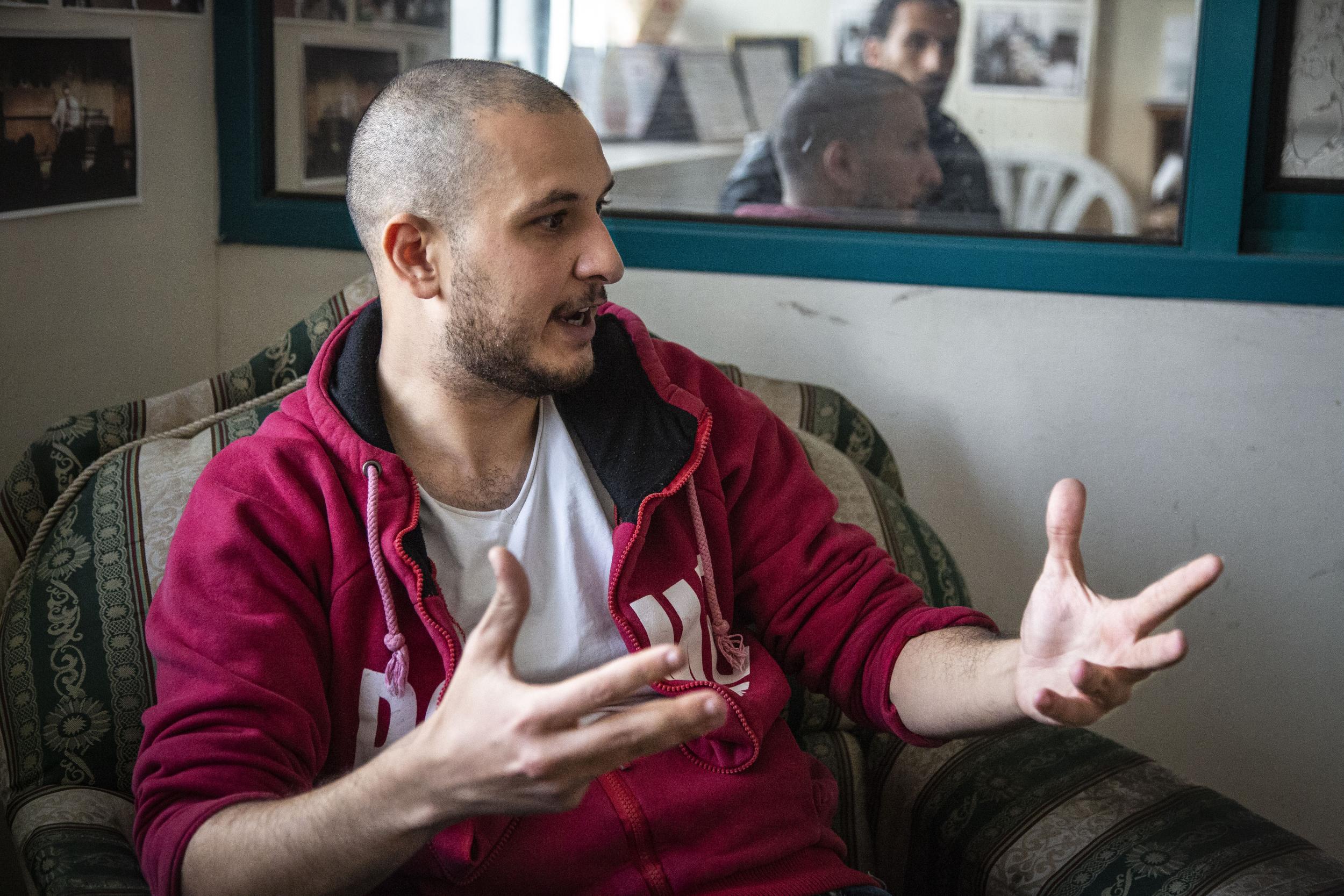
The centre also promotes co-existence within Gaza and abroad. They even build bridges with Israeli citizens living near the border to try to work towards a civilian-led peace process.
Jawdat’s brother, frustrated by the lack of work, left Gaza for Jericho in the occupied West Bank, last year on an Easter permit during one of the last exoduses.
He now fears the Christian community will disappear completely as more and more follow suit.
“People leave and go to places like Turkey and end up worse off. Our role in the church in these centres is to raise awareness about this, to make life better so people stay,” he explains.
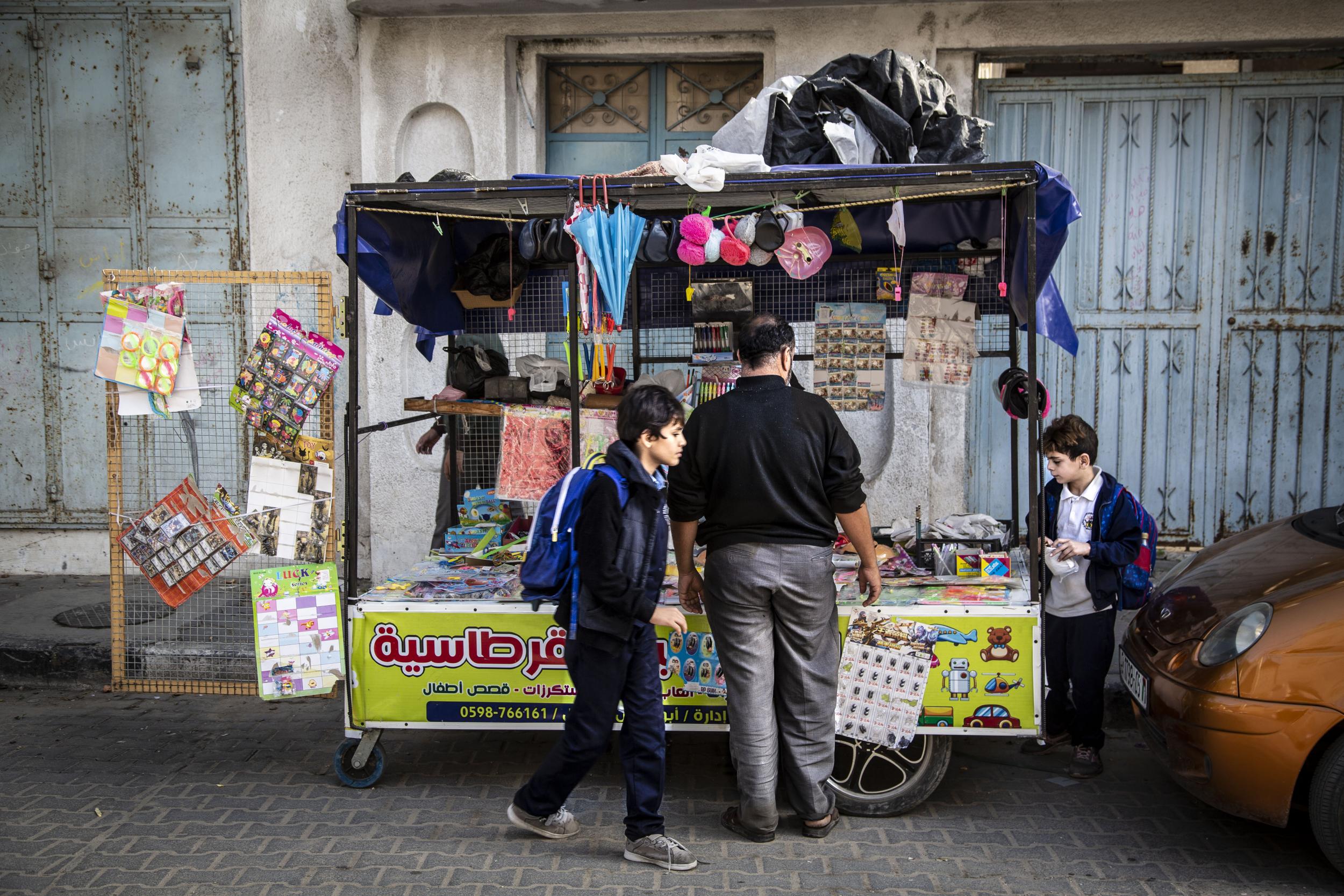
His biggest dream is to form Gaza’s first Christian political party to give the Christians a voice in the governance of the strip, which he thinks would make a difference.
“We have no chance to be in government. It is frustrating not to be a part of the leadership, to be a decision maker. But I hope to change that,“ he continues.
“Who knows – if we’re lucky maybe they’ll give us the role of Gaza’s minister of tourism,” he adds as a joke.
In the meantime, youth like Ehab are dreaming of a better life outside Gaza’s walls.
“Christmas is particularly tough, I guess,” he says. “People get desperate while watching those in Europe celebrating freely. We get a bit depressed because we can’t be like them.”
Join our commenting forum
Join thought-provoking conversations, follow other Independent readers and see their replies
Comments